
Artificial Intelligence is everywhere in digital marketing today. From writing tools to AI-driven SEO assistants, there’s no shortage of claims that machines can replace humans in content creation.
But can AI-written content actually perform as well as human-written content?
Can deleting half your blog improve your SEO?
And does ChatGPT really drive better conversions than Google?
At Ideas To Reach, we’ve studied these questions closely — and some recent insights from SEO expert Nathan Gotch (founder of Rankability, an AI-powered SEO software) bring a sharp perspective worth unpacking.
Let’s go through what’s changing in search, content creation, and performance tracking — and what it means for your SEO today.
A recent study by Graphite looked at around 50,000 URLs to compare AI vs. human-written content. That’s a small snapshot compared to the billions of pages online, but the findings match what many SEO professionals — including us — have observed:
Human-written content, or more precisely, human-guided content, still tends to outperform fully automated AI text.
If you’ve ever wondered why Google values experience and credibility, read more about E-E-A-T and how it’s earned, not added.
At Ideas To Reach, we’ve always said that AI should amplify, not replace, human creativity. The same idea surfaced in Gotch’s observations.
He explains that while AI content detectors are easy to manipulate, the true differentiator is the human input before and after AI generation — the thinking, the prompting, the editing.
“The magic is in the edit,” as writers say — and that’s exactly where brands either shine or sink.
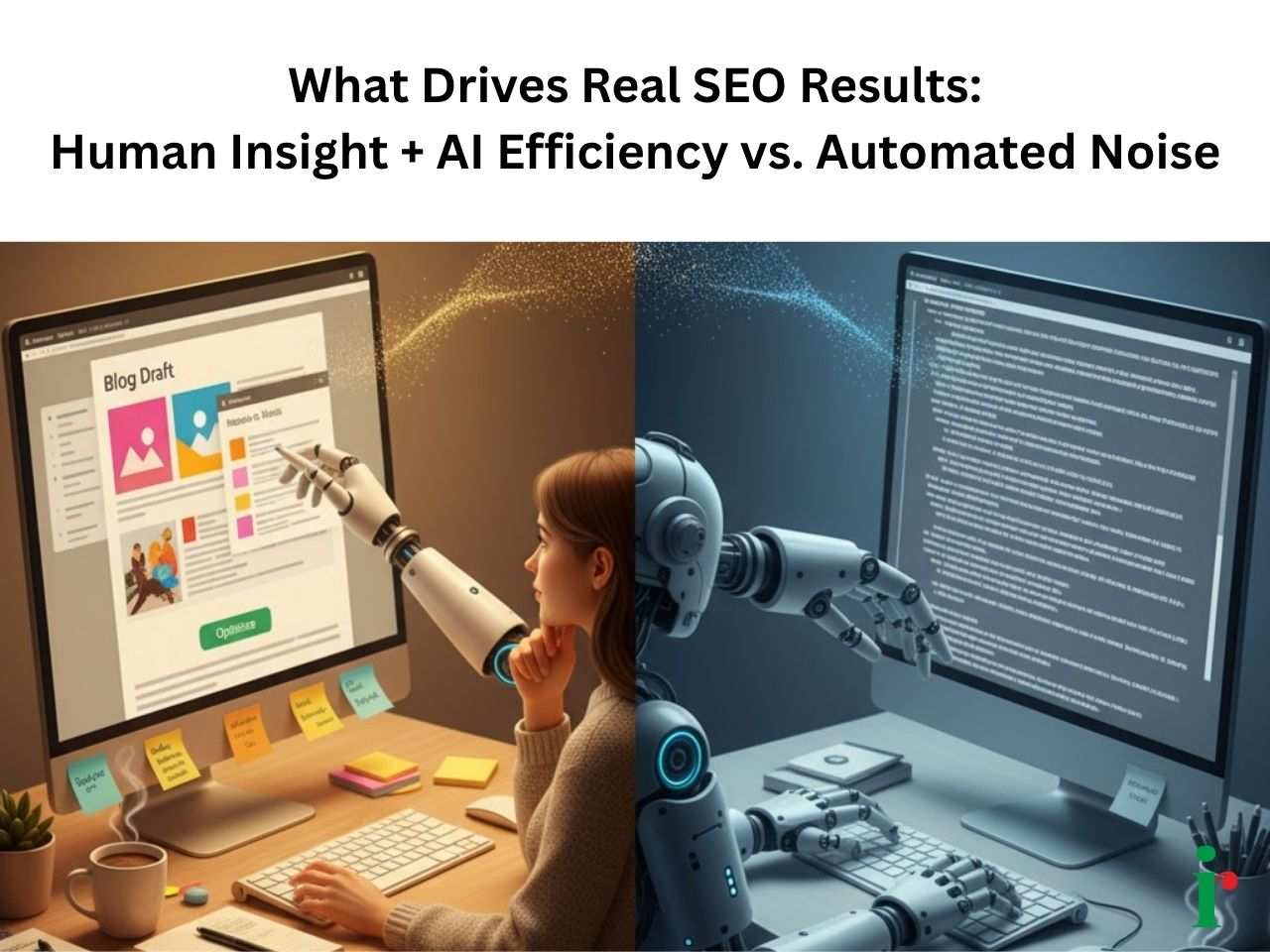
When humans provide the strategic input and editorial refinement, AI becomes a creative ally. But if you rely purely on auto-generated text, you’re likely producing what search engines classify as “thin value.”
Google and AI search models don’t judge content by its origin. They judge by usefulness. If your AI-assisted page truly helps users — clear answers, good structure, real insights — it has every chance to rank.
The takeaway:
Stop worrying about whether content is AI or human. Start ensuring it’s genuinely helpful, factual, and well-edited.
One of the most misunderstood SEO “hacks” is deleting old or underperforming blog posts. A Reddit discussion recently suggested deleting 700 articles to improve rankings.
That’s an extreme move — and as Gotch explained, a dangerous one if done without process.
Before deleting anything, perform a content audit using tools like Screaming Frog, Google Search Console, Google Analytics, and Ahrefs.
These reveal:
Impressions and clicks (Search Console)
Traffic trends (Analytics)
Backlinks and link equity (Ahrefs)
If a page shows no impressions, no clicks, no traffic, and no backlinks for years — yes, it’s time to act.
For better context, learn how often you should update your website for SEO
Delete — for pages with zero value and no backlinks.
Redirect — if a non-performing page has backlinks, point it to a relevant live page using a 301 redirect.
Update — refresh stale pages with new data, better visuals, and current keywords.
Consolidate — merge overlapping topics into one authoritative piece.
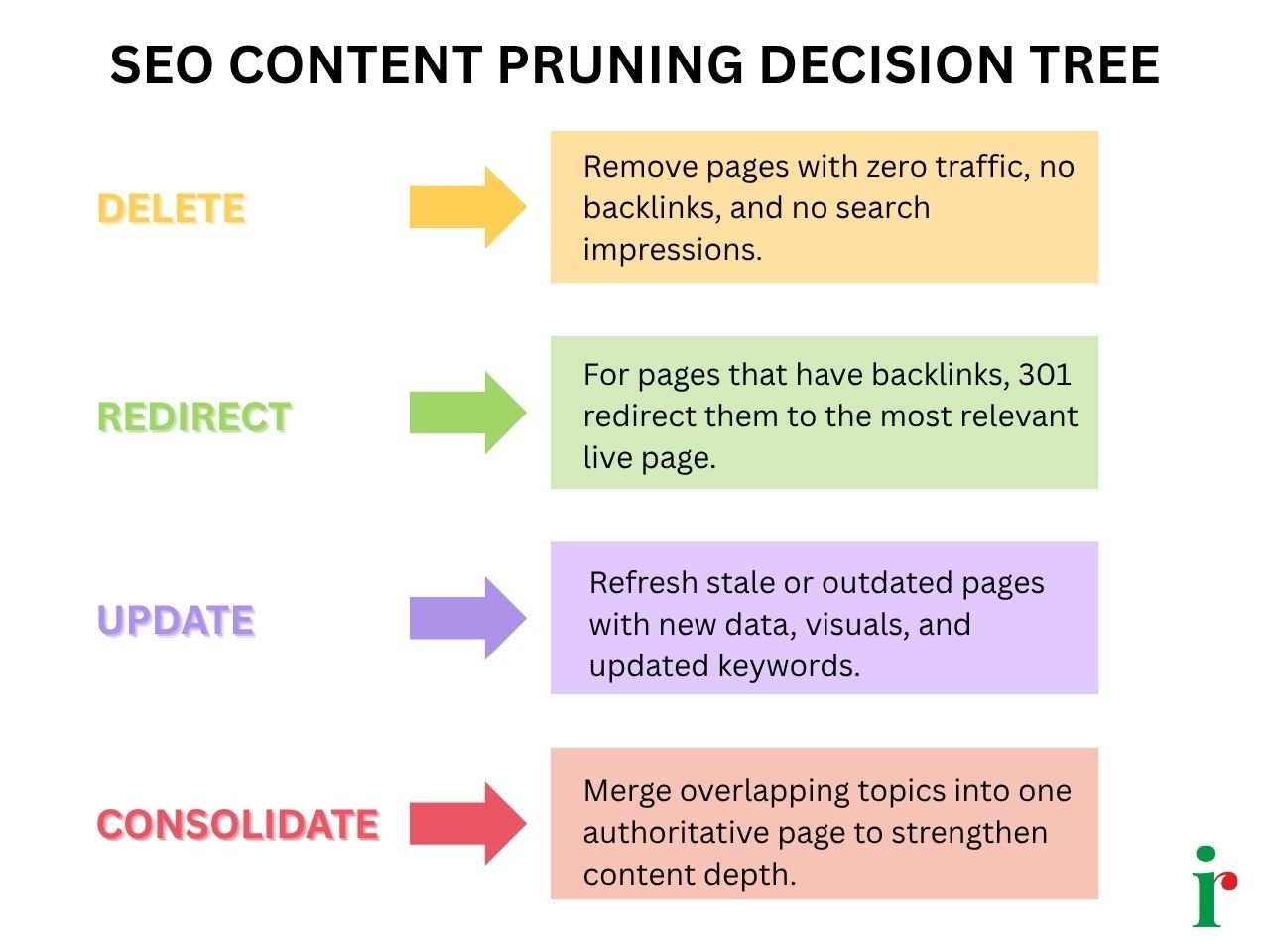
Deleting without an audit is like throwing away your wardrobe without checking what still fits — wasteful and unnecessary.
Redirecting hundreds of old posts to your homepage seems harmless but can confuse search engines and dilute topical relevance.
Instead, always redirect to the most contextually similar page.
For instance, if you’re deleting a “Blue Shoes Guide,” redirect it to a “Blue Shoe Trends” or “Best Blue Shoes” page — not your homepage.
It keeps the topic integrity intact and preserves link equity where it matters.
Another common worry during site cleanup is: “Will deleting pages lower my Domain Authority?”
Let’s clear this up.
Domain Authority (DA) is a third-party metric — created by Moz — to estimate a site’s strength. It’s useful for benchmarking, but it’s not a Google ranking factor.
Google has its own internal authority signals, but they don’t map one-to-one with Moz’s DA. So deleting a page won’t automatically drop your site’s “real” authority.
To understand DA deeper, read Domain Authority Is the New Digital Reputation Score — and Why It Matters
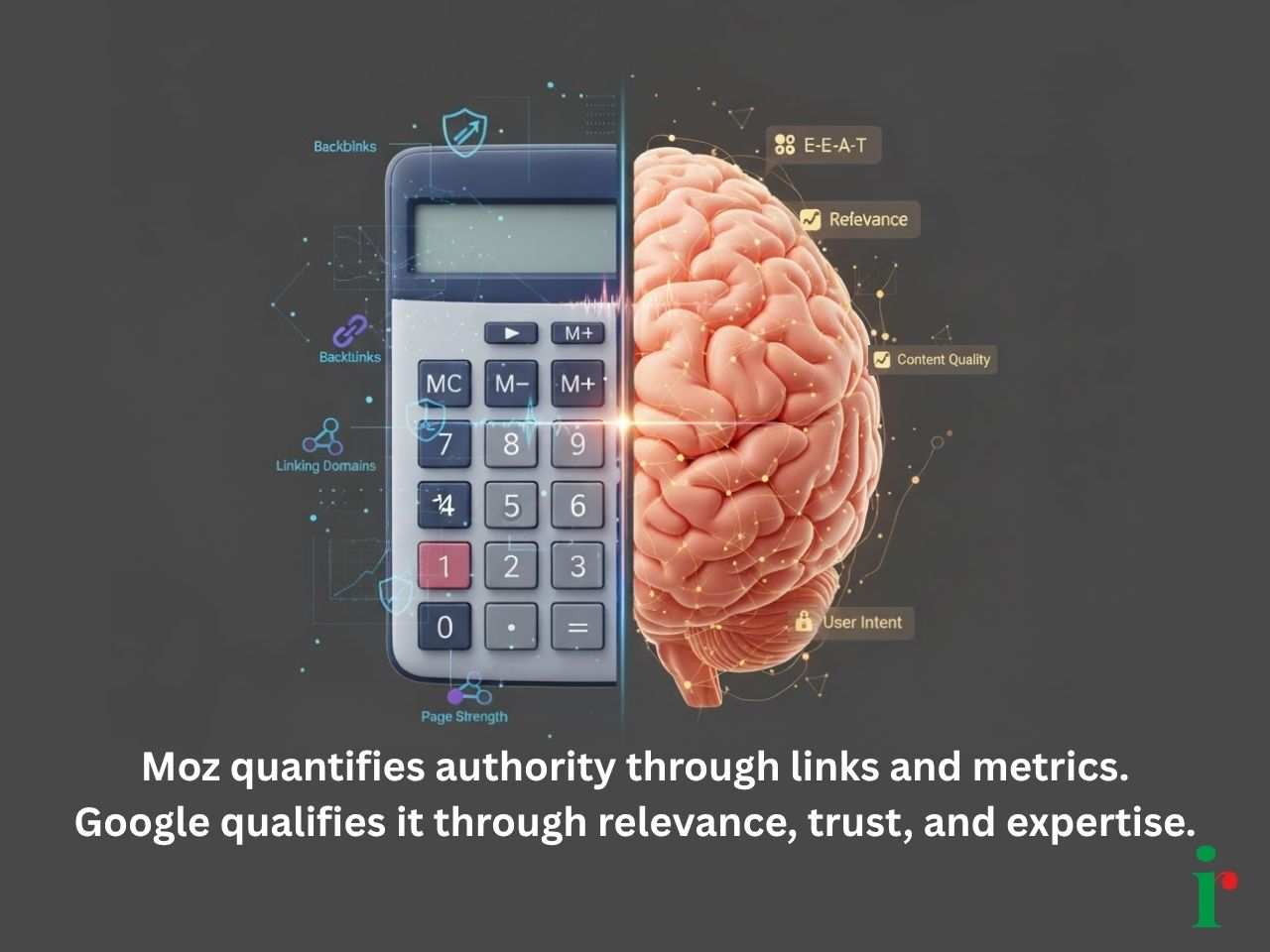
What can hurt is deleting pages that have backlinks without redirecting them. That’s like breaking a bridge that connects to your site. So before deleting, always check your link sources and reclaim valuable 404s.
Ahrefs recently confirmed what most experienced SEOs already knew:
97% of clicks go to the first 10 results on Google.
So ranking beyond Page 1? Practically invisible.
Even in the age of AI overviews and chat-based search, your Google ranking still defines your discoverability.
But there’s a twist — top Google rankings now influence AI visibility too.
When ChatGPT or similar models perform a search-based response, they often retrieve content from top-ranking Google pages — sometimes only from the top 5, occasionally extending to page 2 or 3.
That means:
If your website ranks high in traditional search, it’s also more likely to appear in AI-generated search results.
So, SEO isn’t dead — it’s evolving.
Traditional rankings now power visibility inside AI ecosystems like ChatGPT, Perplexity, and Google’s own AI Overviews.
Read How to Rank on Google AI Overviews & AI Search to know how to prepare your pages for this hybrid discovery model.
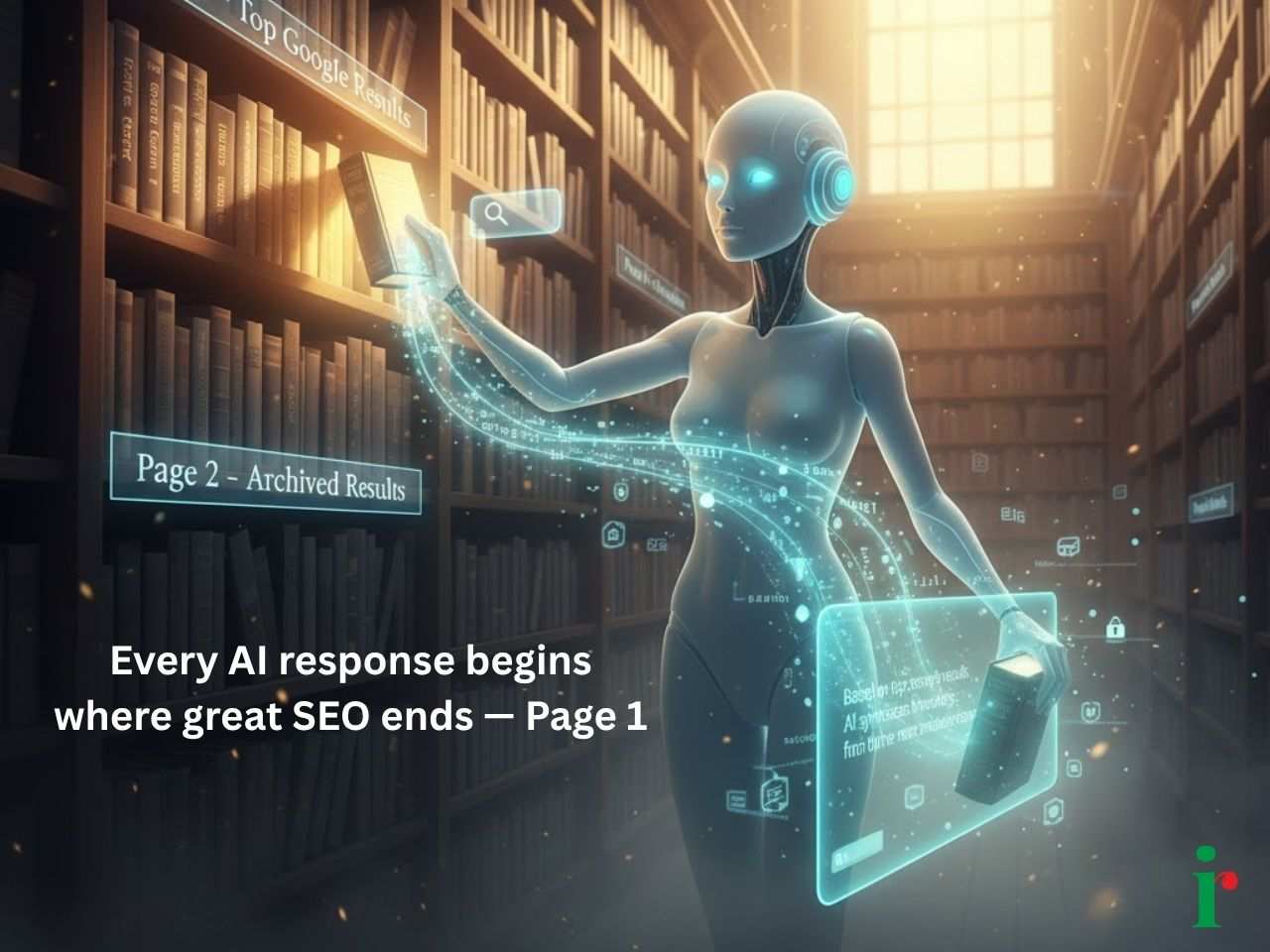
There’s been a wave of claims that traffic from ChatGPT or AI referrals converts better than organic Google traffic. But according to multiple studies, including one cited by Gotch, that’s not accurate.
ChatGPT-driven traffic is minuscule compared to Google — roughly 200 times smaller.
In most Analytics dashboards, Google still contributes 50–60% of total website visits.
So no, ChatGPT traffic doesn’t replace Google traffic. But it does play a unique role.
When your brand appears in an AI-generated response for a commercial query, it builds awareness.
That mention might not send immediate referral clicks, but it creates brand recall, leading users to later Google your name — a behavior already seen in social media-driven SEO.
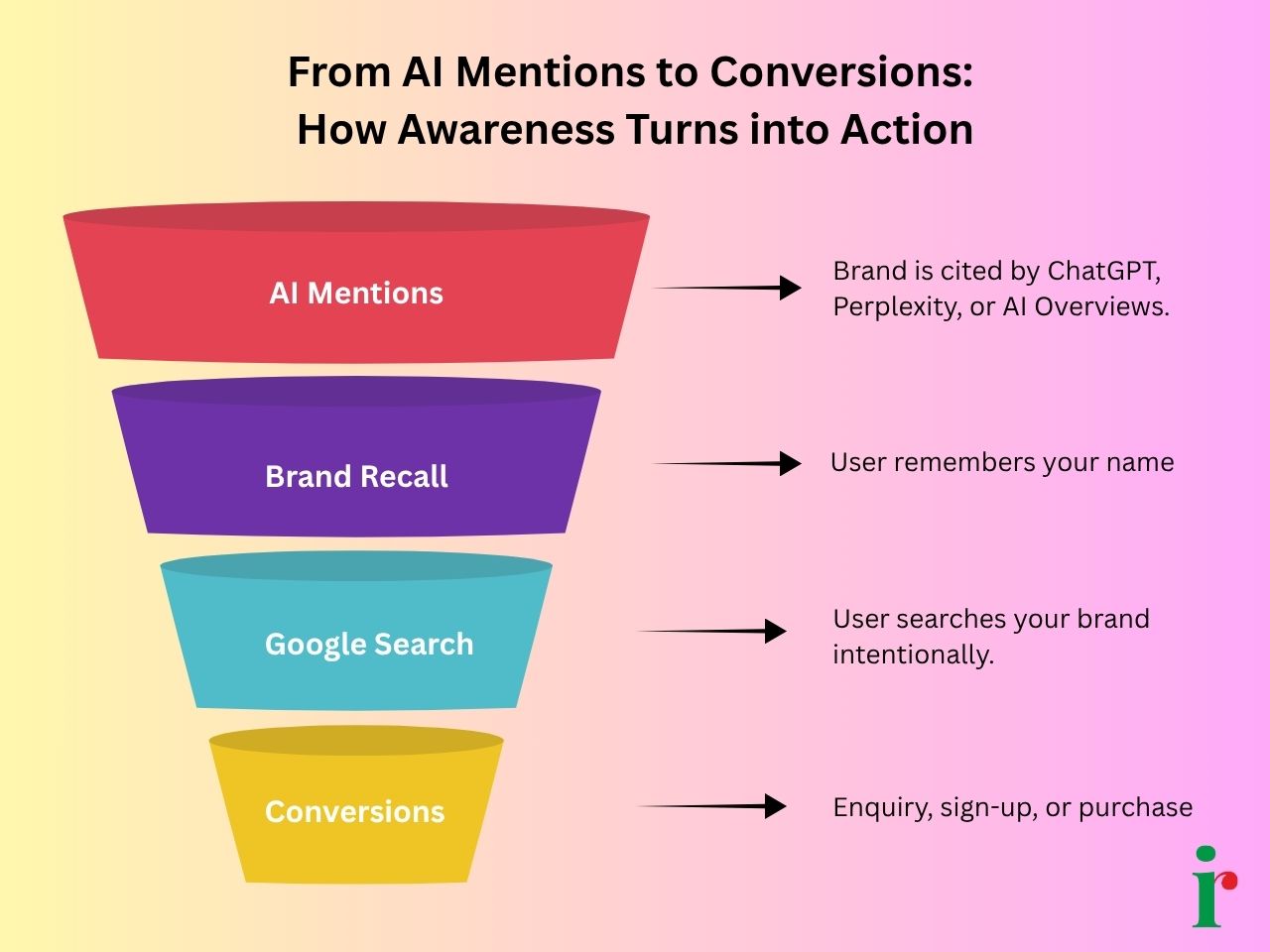
AI referrals don’t behave like direct clicks from search results. Instead, they act like branding triggers.
That’s why Ideas To Reach focuses on tracking brand visibility inside AI answers, not just traffic.
When your brand appears as a recommended name in ChatGPT for a buying intent query — say “best SEO agency in Chennai” — that’s digital word-of-mouth at scale.
Here’s what to measure beyond just rankings and referral traffic:
Share of Voice in AI search results
Branded search growth in Google
Engagement metrics on long-form content (dwell time, scroll depth)
Conversion intent of organic visitors, not just quantity
Because the future of SEO isn’t about fighting AI — it’s about working with it.
At Ideas To Reach, we believe in balanced progress.
Use AI to save time, but spend that time on strategy, research, and editing — the parts AI can’t replicate.
Whether it’s pruning old content or ranking in both Google and ChatGPT, remember one principle: Great SEO still starts with useful content and human understanding.
And that truth isn’t changing anytime soon.